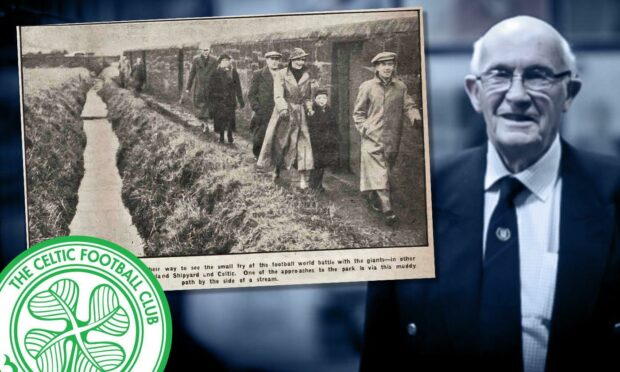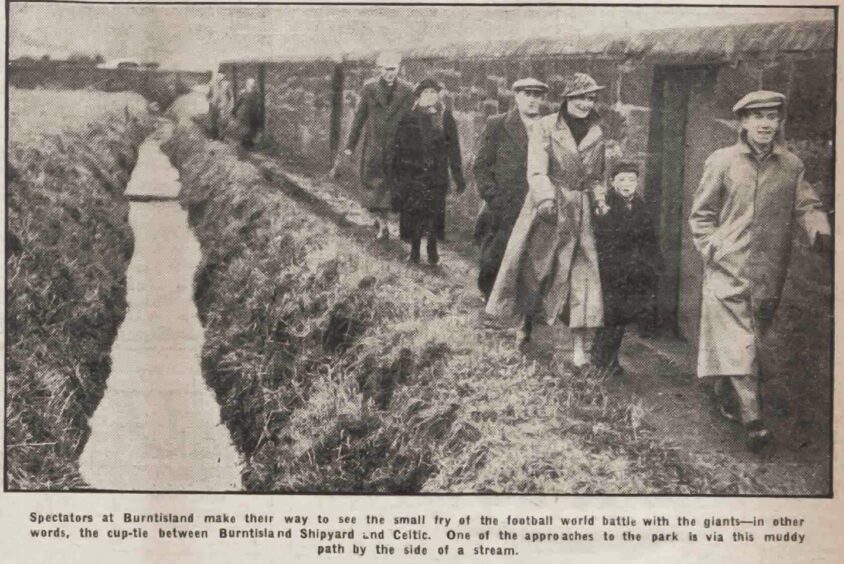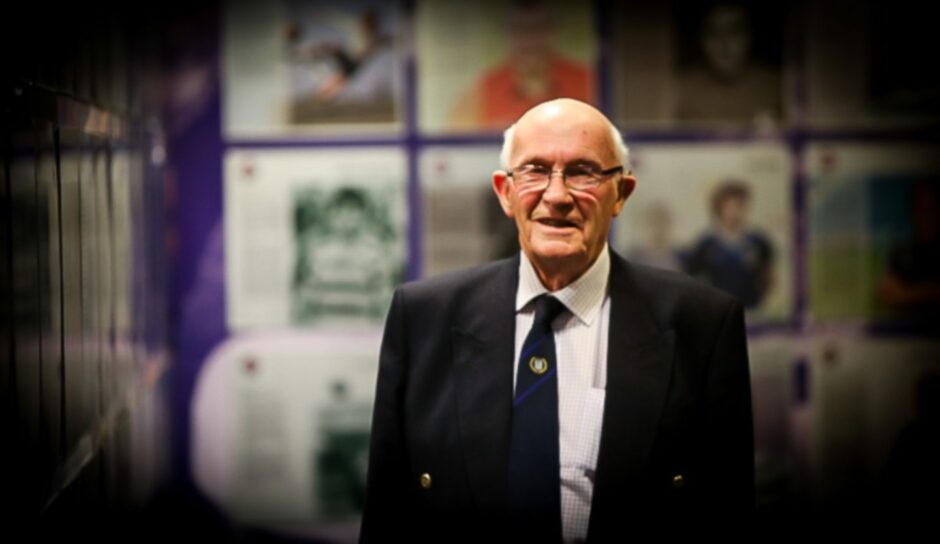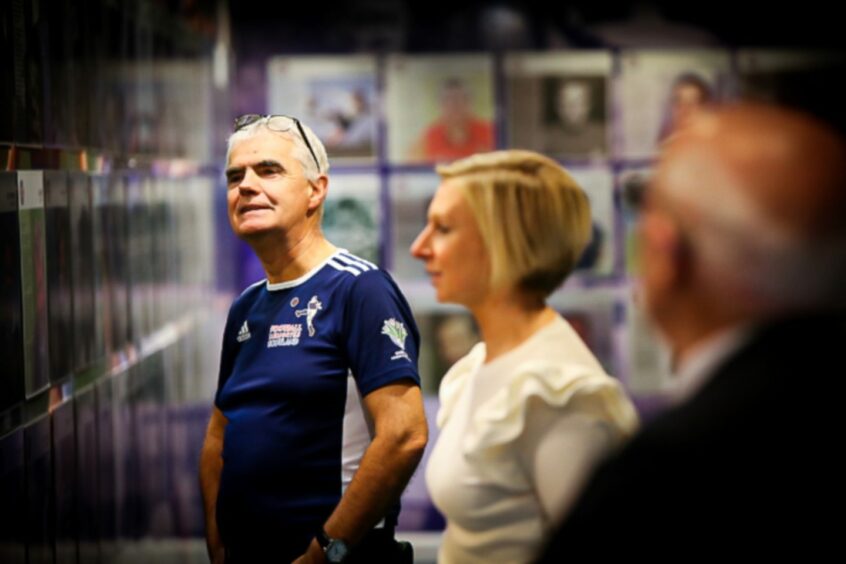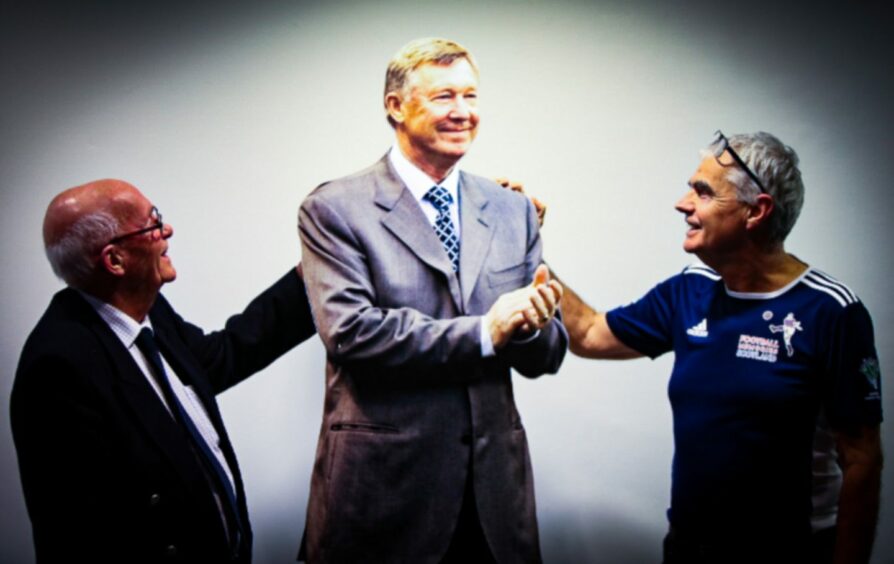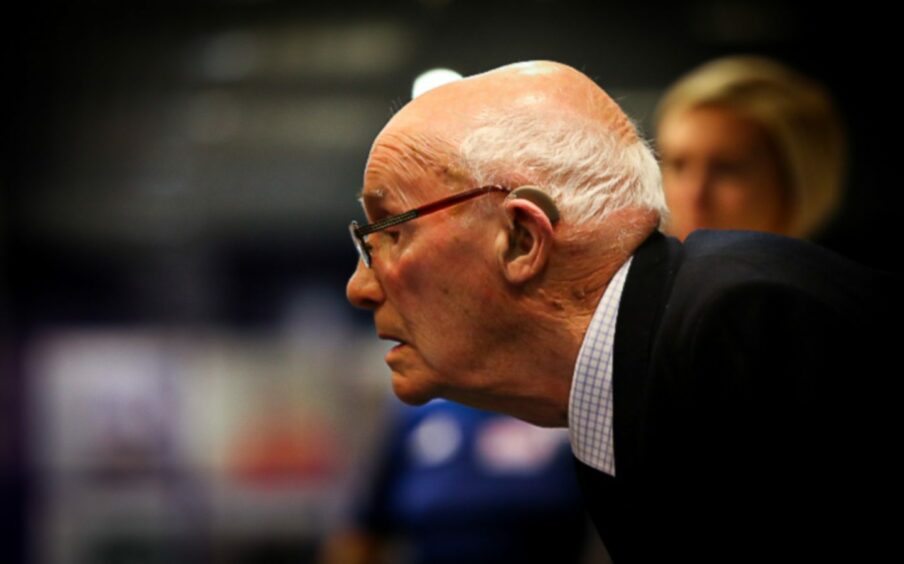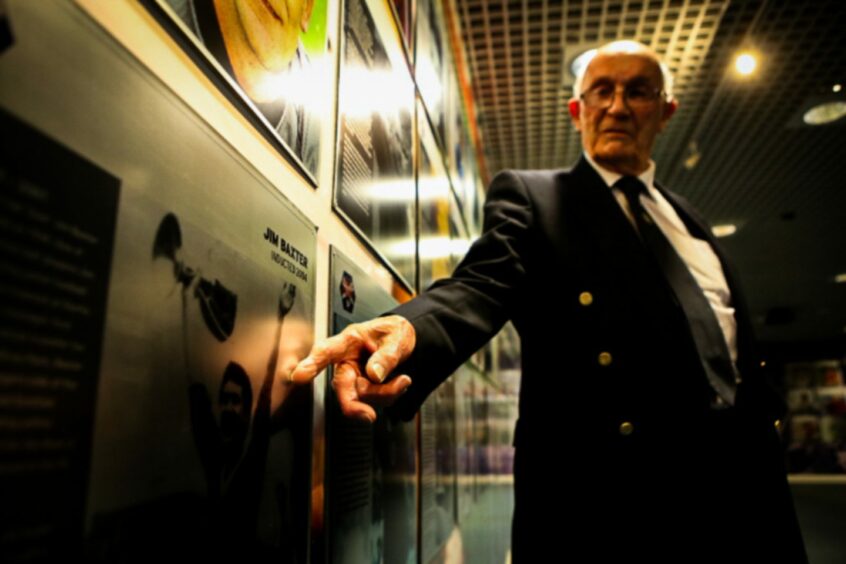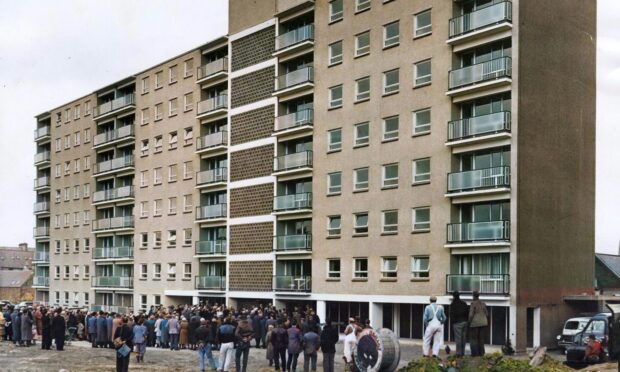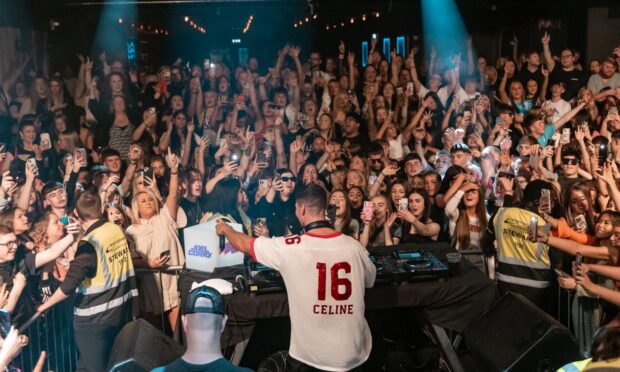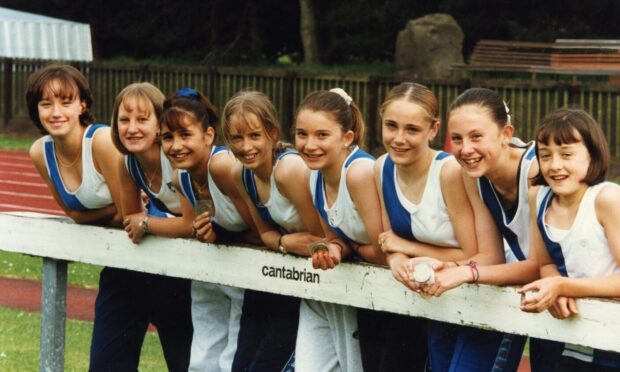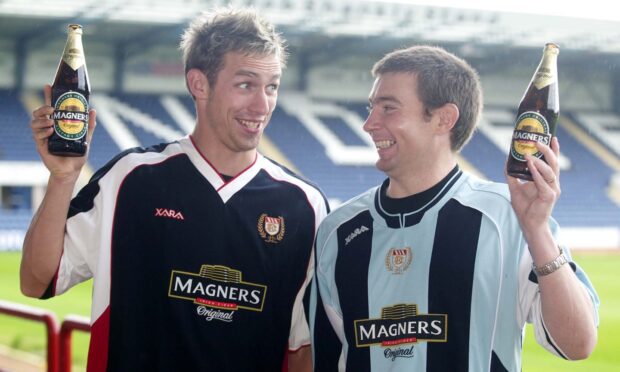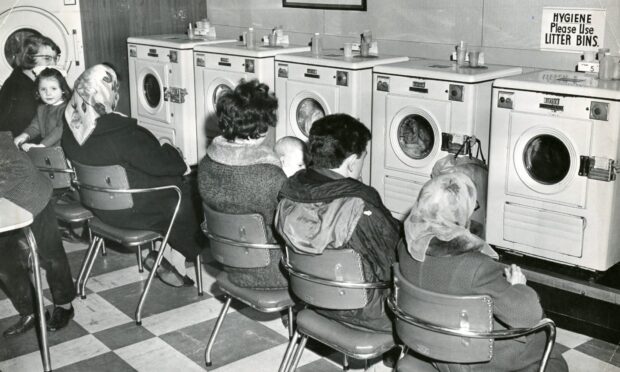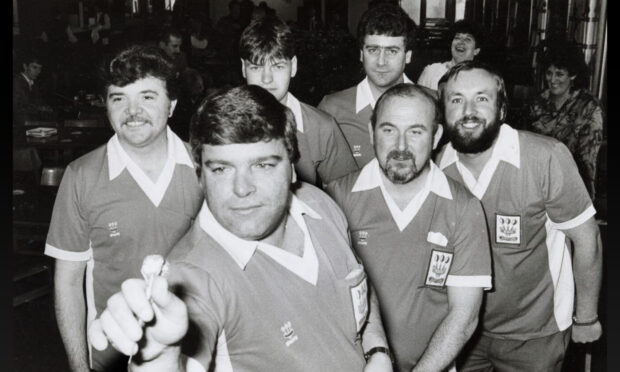It was the biggest game in the history of Burntisland Shipyard; a Scottish Cup clash with mighty Celtic and a precious opportunity to joust with giants at their modest home in Fife.
And although it is 83 years since the Glasgow giants travelled through to the kingdom and locked horns with their little-league rivals – who gave them an almighty scare for an hour of the proceedings – the occasion still evokes happy memories for Bob McDonald who has never forgotten his grand day out.
He’s a sprightly 89 (and a half!) now, but while he was only six (and a half!) on that January afternoon in 1939, the afternoon is etched in his mind.
This is not only because The Sunday Post captured for posterity the sight of he and his family en route to the match and published it in the following day’s paper, but because Bob has an abundance of anecdotes and recites them with the flourish of a footballing Peter Ustinov.
An estimated crowd of 3,000 attended the spectacle with adults paying a shilling and children sixpence.
The stand was a temporary construction that had been built by the men in the yard in readiness for a coruscating contest.
The final scoreline of 8-3 to the visitors may indicate that they were in complete control, but nothing could have been further from the truth.
As The Courier reported: “The result might suggest humiliation for the locals, but it was the opposite. They played the Celts goal for goal, until 15 minutes into the second half – a feat that few had expected.
“Indeed, from the remarks of the handful of Celtic supporters who had made the trip to Kirkton Park, there were even visions of a replay for their team”.
It’s not every day that a game is stopped due to a poisonous snake invading the pitch.”
Bob McDonald
The youngster was in thrall to the fast-paced nature of the contest and witnessed a glut of goals, but the favourites didn’t take the lead until the 19th minute and, although they never trailed, were only 3-2 up at the interval.
The amateurs could briefly entertain hopes of a giant-killing performance when George Aitken notched his second goal – the other came from Alf Birrell – just a few minutes into the second half.
But gradually, inexorably, the sheer physical effort took its toll and their fitter rivals capitalised in the closing stages with a flurry of goals from Crum (3), Macdonald (2), Murphy, Watters and Delaney.
It finished with the vanquished players dead on their feet. Or, to adopt the, ahem, pun-tastic coverage of The Courier on January 23: “By then, the shipbuilders were showing a distinct list to starboard.
“Stoking up until it was a case of full steam ahead, Celtic went on to give the illusion of a destroyer making rings round a tramp steamer, and progressed five knots (goals to you) in half an hour. But at least, the lads from the Yard had them tied up for an hour and the crowd were royally entertained.”
The whole day was magical
Bob told me: “My father served his apprenticeship as a blacksmith at Burntisland Shipyard and I believe he played a few games for the team.
“He lost his job because of the Depression (in the late 1920s and early 1930s) but returned to the shipyard as an ‘essential worker’ throughout the Second World War.
“My first football team was the Burntisland Shipyard juvenile side, the season before I went to Kirkcaldy High School in September 1943.
“Barry Sullivan, the assistant archivist (at DC Thomson), has tracked down the ‘McDonald family photograph’ along with first-class reports in the sports section of the game against Celtic at Burntisland and the Raith Rovers v Rangers Cup tie at Stark’s Park on the same day (the visitors won 1-0).
“There is plenty of mention of how the temporary stand was fabricated and erected by the shipyard workers and it turned into a major occasion.
“I wonder if anybody else who was there is still alive today.”
Bob’s career had extraordinary tales
Bob now works as a volunteer at the Football Memories Scotland venture at Hampden Park, assisted by such stalwart figures as Richard McBrearty, Ursula McFarlane and Robert Harvey, who have offered succour and support to people with dementia and Alzheimer’s through the redemptive power of football in what has become an award-winning project.
And though few sports aficionados in Scotland have been involved in their pastime for quite as long as Bob, he has actually formed a playing partnership with his close friend, George Cameron, who happens to be 92.
There can’t be any other strike force in Scotland with a combined age of 171!
Awaiting the call from Clarkey!
As former Clyde player Robert said: “They both took part in a Walking Football tournament at Hampden.
“Their enthusiasm for the game was unbelievable and they chased every ball and enjoyed a few dribbles.
“It was so inspirational to watch. You never forget how to kick a ball.
“Even in the dressing room beforehand, you could see how much they were enjoying the banter and being part of a football team again.”
The bold Bob was in terrific form afterwards, wondering when he can expect a call from Scotland coach Steve Clarke and remarking: “I felt fitter the next morning.
“The warm-up and the fitba’ must be the reason.”
It was genuinely infectious listening to the myriad tales of the unexpected from this far-travelled former miner who worked while a student in Northern Rhodesia (now Zambia) in the summer of 1952.
While there, he turned out for one of the copper mine towns, but suddenly noticed that spectators on one side of the pitch had started running everywhere, and even on to the playing surface, which halted the action.
As he explained: “A Green mamba had been seen slithering with menace up the touchline… so everybody scattered and ran for safety.
“It’s not every day that a game is stopped due to a poisonous snake invading the pitch.”
And it’s not every day you encounter an individual with such a positive spirit and desire to communicate his passion to others.
But there again, as a child of war, he has equally vivid recollections of less uplifting times.
He said: “I recall those nights when my parents and I were in the Andersen shelter.
“The German bombers came from Holland and used the River Forth to navigate, in the moonlight, towards the Clyde.
“They were flying over Burntisland and I still remember the terrific noise of their engines.
“We knew somebody would be suffering. I was only about 10 and my thoughts were about having the next day off school because of the sirens.”
Bob had trials with both Stirling Albion and Dunfermline Athletic when he was in his 20s, but his father steered him down the education route in the knowledge that one injury could abruptly end his career. It was wise advice.
Yet there’s no doubting the influence and effervescence which this redoubtable customer – for whom the term “still game” definitely applies – offers to the FMS scheme and how he has inspired others in his wake.
He’s won his first Football Memories cap
As Robert told me: “Bob is a valuable member of the groups.
“He always shares a story or two about his footballing days in Fife and his enthusiasm, humour and life experience stories are always welcome and much appreciated.
“Just before Christmas, our local Football Memories group decided to award a few of our senior members with a ‘cap’ for their outstanding contributions to us over the last 18 tough months during lockdown.
“Bob was the person who was given the first Football Memories Scotland cap and he was chuffed.
“But he will be even more chuffed if he ever receives that phone call from Steve Clarke, if he is selected for the next Scotland game!”
This, of course, is tongue-in-cheek stuff, but if anybody wants to learn more about the benefits of regarding age as purely a number and bringing the past and present together to boost those whose memories might be fading, check this fellow out.
He’s a tonic, he’s a trooper… he’s a breath of fresh air.
- For further information about being part of Football Memories Scotland or joining a group close to you, contact the Project Office at Hampden or email ursula.mcfarlane@scottishfootballmuseum.org.uk
